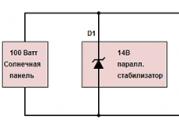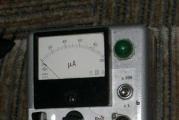The meaning of lovett william in the great soviet encyclopedia, bse. Exemption and withdrawal from politics
Traditionally, Poland is considered a victim of Nazi Germany, even called it the "first victim" of the Reich. Currently, in general, a myth is being created that Poland and the Polish people were victims of as many as two tyrannical regimes - Germany and the USSR. The fact that Warsaw was in a certain historical period of time almost the main ally of Hitler in his aggression against neighboring countries, they try not to remember. As well as the fact that Poland became a victim of Germany largely due to the stupidity, stubbornness of its military-political elite, if it were smarter, it is quite possible that the Polish army, like the Romanian or Hungarian, would have participated in the “crusade” against the USSR of a united Europe .
The Polish elite, after the restoration of statehood in 1918, did not hide their plans to recreate "Great Poland" from sea to sea - from the Baltic to the Black, i.e., the restoration of the borders of the medieval Commonwealth. It was supposed to include: all of Lithuania, Belarus, Latvia along the border of the Western Dvina, Ukraine to the Dnieper, i.e. the main expansion was directed to the east. But the western neighbors also “should” have given Poland a number of regions, Warsaw presented territorial claims to Czechoslovakia and Germany. It is clear that it was profitable to develop expansion to the east, the situation contributed to this. So, in October 1920, the Polish General Zheligovsky carried out an operation to capture Vilnius (which was immediately renamed Vilna) and the area adjacent to it - in total, the Poles captured about a third of the territory of the Republic of Lithuania. During the same period, Warsaw, during the Soviet-Polish war, received the regions of Western Ukraine and Western Belarus, although they counted on more significant territorial acquisitions.
The Lithuanians were indignant at that time, but they did not have the strength to liberate the Vilna region. The Supreme Council of the Entente condemned the actions of the Poles, but limited itself to this, there were problems and more important than the disassembly of the "young democracies". Lithuania did not legally recognize this capture.
Warsaw decided to return to the issue of legal registration of the seizure of this territory at a very interesting moment: on February 28, 1938, Hitler informed Warsaw of his desire to make an anschluss (reunification) with Austria. A few days later, Berlin demanded that the Austrian Prime Minister Schuschnigg cancel the state plebiscite on the issue of Austrian independence and resign. Already on the night of March 11-12, 1938, the Wehrmacht entered the territory of Austria. At the same time, a dead Polish soldier was found on the Polish-Lithuanian border. On March 13, Warsaw blamed the murder on the Lithuanian side, and a campaign was launched in the Polish press demanding to start a war with Lithuania in order to capture Kaunas (then the Lithuanian capital). Berlin found complete understanding in Warsaw: in response to the recognition of the Anschluss of Austria, Hitler was ready to recognize the seizure of all Lithuania by Poland, except for the city of Memel and the area around it. Hitler believed that this city should enter the Reich.
On the night of March 16-17, 1938, Warsaw presented an ultimatum to Lithuania demanding the restoration of diplomatic relations between the countries. The restoration of diplomatic relations automatically led to the recognition of the existing de facto border line between the two countries. Lithuania was asked to abandon Vilna and the Vilna region. The Lithuanian government had to accept this ultimatum within 48 hours, the credentials of the diplomats had to be confirmed before March 31. In case of refusal, Poland threatened to use force.
The USSR invited the Lithuanian government to "give way to violence", but at the same time, Moscow informed Warsaw that the USSR was interested in maintaining the independence of Lithuania. In the event of a war, the Soviet Union will terminate the Polish-Soviet non-aggression pact without warning, and in the event of a war between Poland and Lithuania, it reserves the right to freedom of action. As a result, Warsaw softened its position, the USSR, with its active intervention, actually saved Lithuania from Polish occupation.
In the future, Germany and Poland continued fruitful cooperation: Warsaw supported the German annexation of the Memel region; then Poland took part in the dismemberment of Czechoslovakia.
Lithuania must remember that only Moscow saved the Lithuanian people from the Polish occupation, and after the victory in the Great Patriotic War, returned Vilna and Memel with the regions to Lithuania. Moreover, Vilna was transferred back in 1939 under an agreement on mutual assistance between the USSR and Lithuania, although they could not have done this, by the right of the winner. The Lithuanian people should express their gratitude personally to Comrade Stalin and the Soviet people in general...
Sources:
diplomacy. T-34.
Sipols V. Ya. Diplomatic secrets. Eve of the Great Patriotic War. 1939-1941. M., 1997.
At the end of the NATO summit in Wales, Lithuanian Foreign Minister Linas Linkevičius said that secret documents had been agreed upon, providing for the deployment of weapons and military equipment and a contingent of allied countries in the Alliance without restrictions in the country. However, why does this news cause an ambiguous assessment among the Poles?
The answer lies in the long-standing mutual hostility and enmity between the two countries - Poland and Lithuania, as well as mutual claims to the neighbor's lands. Thus, the Lithuanians demand to regain the city of Sejny and its environs, lost in the 20s of the last century, and the Poles claim the Vilnius region, where more than 60% of citizens of Polish nationality live today.
Here, for example, is what the Polish media say.
“In the name of one-sided anti-Russian solidarity in the name of Ukraine, Poland forgot about its commitment to the Poles living in Lithuania and about the standards in the field of the rights of national minorities guaranteed by the European Union,” Polish publicist Rafal Zemkiewicz expressed this opinion on the pages of Do Rzeczy. According to him, “the Polish minority in Lithuania is clearly persecuted, and in foreign policy It is difficult for Lithuania to recognize any sign of gratitude for many years of Polish care.”
Therefore, naturally, the growth of the military component of the neighboring state (albeit an ally in the NATO and EU bloc), which put the oppression of the Polish minority in the rank public policy, raises clear fears of a possible unleashing of another conflict like the Ukrainian one.
This is especially relevant to remember in early September, when Vilnius celebrates the city day - the day of liberation from the Polish invaders.
 Then in the fall of the 39th, the inhabitants of Vilnius rejoiced, welcoming the entry of Lithuanian soldiers into the city. Lithuanian leader Atanas Smetona wrote: “…thanks to Soviet Union and the Red Army restored historical justice - Vilnius was liberated from the Poles, finally reunited with Lithuania and again became its capital.
Then in the fall of the 39th, the inhabitants of Vilnius rejoiced, welcoming the entry of Lithuanian soldiers into the city. Lithuanian leader Atanas Smetona wrote: “…thanks to Soviet Union and the Red Army restored historical justice - Vilnius was liberated from the Poles, finally reunited with Lithuania and again became its capital.
However, this was preceded by a bloody war, which went down in history under the name of the Polish-Lithuanian.
And September for Lithuanians is associated not only with a joyful event - the return of the capital, but also with the loss of part of the territories. In 2014, 95 years have passed since the end of the Polish-Lithuanian conflict, as a result of which the border town of Sejny and the territories adjacent to it were recaptured from the Lithuanians. This event, which took place in September 1919, is the subject of an article by the Polish historian Adam Grzeszak, published in the weekly Politika.
Sejny, located in the northeast of present-day Poland (modern Podlaskie Voivodeship), was inhabited mostly by Lithuanians, but in 1919, when the occupying German troops began to withdraw from these territories, the new authorities in Warsaw, led by Jozef Pilsudski, decided to recapture the city from Lithuania and annex it to Poland.
Meanwhile, for Lithuania, Sejny was a landmark city, and not just a geographical point on the map. “Sejny is an outstanding place for Lithuanians. It was there and in Kaunas that the Lithuanian national movement was born at the end of the 19th and beginning of the 20th,” writes the Polish historian. There was a Lithuanian Catholic seminary in the city, whose graduates for the first time dared to hold services in their churches not in Polish, but in Lithuanian.
In order not to attract too much attention to the annexation of the city, it was decided to occupy the city with the forces of the semi-regular Polish Military Organization (POW), a structure specially created for sabotage operations in territories that the country's leadership considered "occupied".
The rejection of this territory from Lithuania led to the fact that until the beginning of the Second World War, relations between the two neighboring states could be defined as " cold war”, writes A. Grzeszak.
At present, taking into account assimilation, Lithuanians make up only 8% of the population in Sejny, but their relations with local Poles can hardly be called good. Analyzing current situation in Sejny and its environs, Adam Grzeszak concludes that “two different histories” still exist there – Polish and Lithuanian, and “in the Polish version there is no place for Lithuanians, and in the Lithuanian version there are no Poles.”
It should be added that not so long ago on the Internet, in social network Facebook, Lithuanian programmers developed and implemented a strategy game "Lithuania needs your help in the war", where gamers liberate the country from the Poles, killing the latter.
As they say hard in learning - easy in battle ...
Unfortunately, the forecasts are disappointing. The unjustified militarization of Lithuania through NATO donor countries can play a cruel joke on the Warsaw-Vilnius relationship. The strategists of the Alliance clearly did not foresee such a scenario of events, stuffing the Baltic region with decommissioned armored personnel carriers and tanks.
early activism
Arrest
Like most leading Chartists, Lovett was arrested. In February 1839 the first Chartist Convention met in London, and on 4 February 1839 unanimously elected Lovett as its Secretary. The Convention later moved to Birmingham. Many supporters gathered in the city's Bull Ring, but local authorities had prohibited assembly there, and several were arrested. The Convention condemned the actions of police in breaking up the "riot", and posted placards which described the police who put down the riot as a “bloodthirsty and unconstitutional force". Lovett, as secretary, accepted responsibility for the placards, and was arrested with James Watson, who had taken the placards to a printer. Lovett was later found guilty of seditious libel , and was sentenced to twelve months imprisonment in Warwick Gaol.
The New Move
An older Lovett.
While in prison Lovett, with Collins, wrote “Chartism, a New Organization of the People”, which focused on Chartist Education. Once released Lovett retired from politics, and in 1841 formed the National Association for Promoting the Political and Social Improvement of the People , an educational body. The body was to implement his New Move educational initiative, through which he hoped poor workers and their children would be able to better themselves. The New Move was to be funded through a 1 penny per week subscription paid by those Chartists who had signed the national petition. Hetherington and Place supported the move, but O'Connor opposed the scheme in the Northern Star, believing it would distract the Chartists from the main aim of having the petition implemented. The New Move was unable to generate the popular support that Lovett had hoped for. Membership never surpassed 5000, and education was limited to Sunday schools. The National Association Hall was opened in 1842, but closed in 1857 when the operation was evicted. Lovett opened a bookshop, and wrote his autobiography, The Life and Struggles of William Lovett, in 1877. He died impoverished the following year.
Beliefs
Lovett was a moral force Chartist, and decried the use or threat of violence to achieve political change. He believed in temperance, and was a staunch advocate of sobriety. Against the educational standards of the time, he believed in teaching methods founded on kindness and compassion.
References
external links
- "Biography" . spartacus.schoolnet . http://www.spartacus.schoolnet.co.uk/PRlovett.htm. (Copyright status unknown)
- "William Lovett and the "New Move"". Chartist Ancestors . http://www.chartists.net/Knowledge-Chartists.htm.
It became extremely popular after the creation of a number of workers' organizations, in particular the London Workers' Association (). His slogans were simple and clear to everyone, so his influence was quite large.
1. Youth
While in jail, Lovett writes an article "Chartism - a new organization of the people", which promotes the dissemination of education to the general public.
4. Exemption and withdrawal from politics
After his release, Lovett retired from politics, and in the city he formed National Association, which advocated strengthening the political obizannosti and improving the social situation of the people. He sought to carry out a new step of educational initiative to help poor workers.
In the late 1940s, he almost departed from the Chartist movement, taking part in only a few conferences. Last years Life Lovett spent in the "shadow", only occasionally appearing in public. However, Lovett's face still had an impact on the masses.
Lovett(Lovett) William (8.5.1800, near Penzance - 8.8.1877, London), leader of the Chartist movement in Great Britain, a petty-bourgeois radical. He was a cabinet maker, bookseller, and teacher. In the 20s. participated in the cooperative movement, was fond of the ideas of R. Owen. One of the organizers London Workers' Association (founded in 1836), secretary of the Chartist National Convention of 1839. He was a supporter of moderate tactics ("moral force"). After his imprisonment (1839–40), L. supported a number of attempts by bourgeois radicals to subordinate the Chartist movement to bourgeois leadership. By the end of the 40s. actually moved away from Chartism.
Great Soviet Encyclopedia M.: "Soviet Encyclopedia", 1969-1978
Read also in TSB:
Lovech
Lovech, a city in northern Bulgaria, on the river. Osam, a tributary of the Danube, 35 km southeast of Pleven, in a wooded area at the foot of the Stara Planina Mountains. The administrative center of the Lovech district. four...
Lovech District
Lovech Okrug (Loveshki Okrug), an administrative-territorial unit in Bulgaria, within the Danube hilly plain, partly the foothills and the Stara Planina mountains. The area is 4.1 thousand km2....
Lovinescu Horia
Lovinescu (Lovinescu) Horia (b. 20.8.1917, Falticeni), Romanian playwright. The first drama to win a State Prize was The Light from Ulm (1952). Drama "The Ruined Citadel" (1954,...




